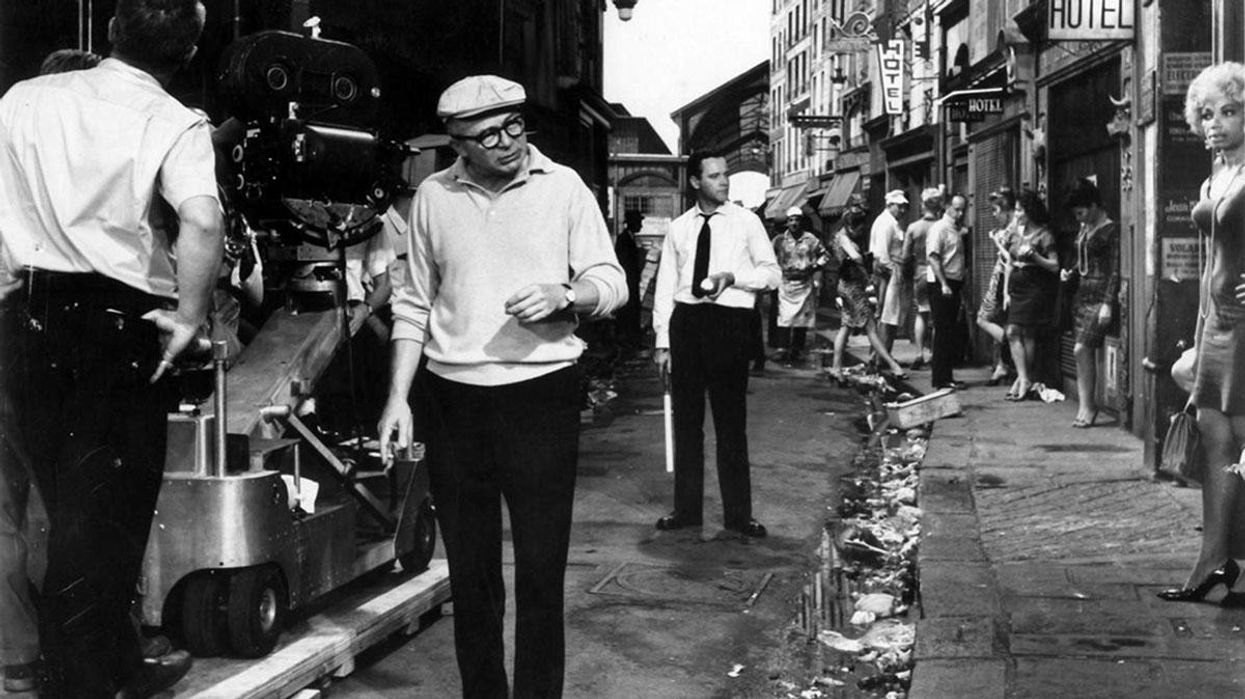10 Storytelling Tips from Billy Wilder
Who better to learn writing from than Billy Wilder?

The question comes up a lot in our forums, so I thought we'd settle it here. Billy Wilder belongs on any Mount Rushmore we do in film history. Many believe he's the greatest screenwriter of all time. I am one of them. In total, he received 13 Oscar nominations for his writing! He won the Oscar for screenwriting three times for Sunset Boulevard, The Lost Weekend, and The Apartment.
That would be enough for Wilder's legacy, but there's more. The American Film Institute has ranked four of Billy Wilder's films among its top 100 American films of the 20th century: Sunset Boulevard (number 12), Some Like It Hot (number 14), Double Indemnity (number 29), and The Apartment (number 80).
If there's anyone we should be learning from when it comes to screenwriting, it's Wilder. Check out this video from Outstanding Screenplays, and let's talk after.
10 Screenwriting Tips from Billy Wilder
1. "Don't confuse dialogue speed with pacing..."
Don't let quippy dialogue still make your movie drag. Pacing is not about how fast people talk. It's about the rate at which events in the story happen.
What are your story beats? Are they coming at us with a lot of filler? Movies don't all have to be lightning in their pacing, but each beat of what you deliver needs to feel deliberate and purposeful.
2. "Writing is a mixture of architecture and poetry..."
The poetry part of this quote is where our art comes into play. You are creating worlds, characters, and voices. But then you have to jam them into the structure of a movie. That's your architecture. It's how you build the walls and the structure of your story. This is a delicate mix.
So try to balance it out. Don't let structure become so rigid you lose out on the character. And don't let the poetic parts wander so much the movie meanders.
3. "Shooting on location and on set have their advantages and disadvantages..."
When it comes to making the movie, being on location has its advantages. You get a quality of realism. There's nothing that can replicate the colors and the depth that shooting somewhere real can give you. But you'll never have the amount of control you could if you shoot on a set. On a set, you get to be god and set the lights and dress everything perfectly.
Take advantage of both.
4. "A great way of developing characters is to elaborate and exaggerate those that impact the world around us..."
Use your friends, family, and just the world around you to inform your storytelling techniques. The world is full of interesting people. You can learn so much from them when it comes to motivations and dialogue.
Take notes. Go out into the world and listen. Then heighten everything. Change real life to be a little more entertaining.
5. "Complex stories should be filmed and presented in a simple way..."
Stories can be complex, but try not to alienate the audience. Take your wildest and most complex ideas and think about the simplest way to tell them. How do you make the story build in a way where the complexities don't take away from the enjoyment?
Keep motivations and characters clear so the complicated stuff can build from there.
6. "Think about your approach and make it original..."
What do you have to say about the world? What are the things that have happened to you that make you and your point of view unique?
The way to stand out in Hollywood is to work on things that showcase how unique you can be. So what makes you special? What themes and ideas translate into what you care about?
7. "Use other stories as inspiration..."
It can feel like procrastination, but watching a ton of films and TV and even playing video games can broaden your horizons. It's okay to explore other facets of art and take in other stories. Go do this and be inspired.
Great artists acknowledge that you can learn a lot from one another. Beg, borrow, and steal; repurpose and reframe to make it personal to you.
8. "Expect the unexpected..."
When making a movie or TV show, things are going to happen that you could never predict. Don't be so set in your ways that you cannot be malleable or change plans on the fly. Of course, honor your story and characters above all, but if things need to change, be a team player and work with other people to make things right.
Shit will hit the fan, stuff will go wrong, but it's how you handle it that gets you more work.
9. "Writing is hard labor. Writing is sweat..."
No first draft is perfect. No outline is finished. Put your butt in the seat and get typing. Writing and storytelling is work. It's hard work. It always has been. The best stuff gets reworked, refined, and challenges both the writer and reader in ways they never knew.
Sweat. Earn the story. Do what you can and then do it better every time you sit down. Challenge yourself and put in the hours.
10. "Balance taking feedback and accepting changes..."
The hardest part of writing is hearing about notes. People want to make things better, and you have to let go of your ego and get good at hearing what people don't like. Filmmaking and TV are collaborative processes.
Not every note will be good, but the best way to excel is to listen to them and try to figure out how you can use them to inspire your next draft.
Source: Outstanding Screenplays













